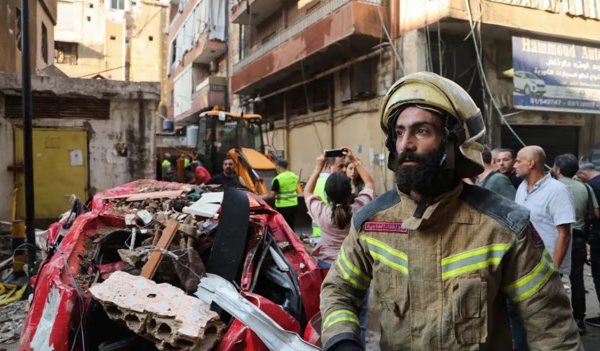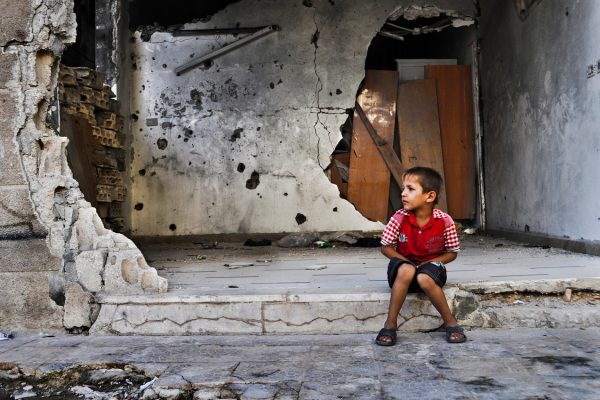Our beloved Prophet Muhammad, on him be peace, said: “Do not waste water, even if you are on a running river.”
Our beloved Prophet Muhammad, on him be peace, said: “Do not waste water, even if you are on a running river.”
As the human population continues to grow, water’s accessibility has dramatically decreased. Climate change, higher demand for water, infrastructure, and general waste all contribute to the current global water crisis. We have seen water scarcity in the poorest of nations, but also in the richest, like the United States. Now, more than ever, is the time to take a stand for water conservation.
The good news is the concept of water conservation is not new to Muslims. Water is mentioned as one of God’s signs of His mercy to all living beings.
Life on earth began from water. From sponges in the ocean to the first tetrapod that crawled on land, water has shaped our lives from day one. Allah sent down water from the heavens in the form of comets, billions of years ago, as two comets aged 4.5 billion years old contained similar compositions to our oceans. Since then, animals and eventually humans utilized water as a home, for hygienic purposes, or to quench thirst.
“In the creation of the Heavens and the Earth; in the alternation of night and day; in the ships that sail the oceans for the benefit of mankind; in the water which Allah sent down from the Heavens and brought with it life to Earth after being dead and gave life in it to every kind of land animal; and in directing the winds; and in the clouds that are enslaved between the Heavens and the Earth; [all these] are Signs for a people who comprehend” (Quran 2:164).
We often do not think about how we waste water.
Like on those days we take a long shower, soak for a bath, wash our car, run the water while we brush, and many other ways we neglect water’s importance. In Islam, as we perform wudu, we too often leave the water running more than we need to. So many daily routines that require water, and yet we fail to see how life can be different without the luxury of clean, safe water.
Our beloved Prophet Muhammad, on him be peace, said: “Do not waste water, even if you are on a running river.”
How many of us actually think about the Prophet’s example of not wasting water? Yet, it is a part of our Islamic tradition. Conservation is a vital element we need to add to our routines and search for ways to end needless waste. When we do wudu, we should consider taking out a bucket of water we use for ablution purposes. Shorter showers, turning off the tap while brushing, and utilizing high-efficiency technology to wash dishes can all help conserve.
“And waste not by excess, for Allah loves not the wasters” (Quran 7:31).
According to the Centers for Disease Control and Prevention, there are currently at least 790 million people in the world who are without access to safe water supplies. Globally, 1 in 3 people cannot even have a drink of safe water. On top of that, 1.8 billion people lack proper sanitation. The statistics are tiresome and jarring, yet many of us still do not see or feel the threat because it does not affect us personally. At the current pace, two-thirds of the world will face water shortages by 2025.
“And We sent down water from the heavens in proper quantity, and we made Earth its dwelling, and We are able to take it away” (Quran 23:81).
With a lack of clean, sustainable water, many regions will be susceptible to water-related diseases. This fact affects children the most; over 800,000 children die each year from diarrheal diseases — preventable diseases that can easily be remedied if we work together to end water scarcity.

“The best form of charity is to give someone water” – Prophet Muhammad, on him be peace.
This month, we celebrate World Water Day as a way to generate awareness on how we can conserve water and help build clean water sources. At Zakat Foundation of America, we understand the importance of watering the thirsty through Sadaqah Jariyah, as we have spent years digging thousands of water wells and hand pumps for villages that lacked fresh, safe water. The legacy you leave behind for your departed loved one will last generations, with proper maintenance, as our water wells can last 30 years. Children will grow up in a world that allows them to enjoy all the benefits of water and not suffer the consequences of preventable diseases.

Our water experts…
- Find the best place for your loved one’s well or hand pump
- Supervise its construction
- Install your loved one’s name permanently and prominently at the site to ensure his or her remembrance in the prayers of its users (an added benefit for the departed)
- Provide you with photos of it gushing blessings of life for people and your beloved
- Teach water and sanitation awareness to its users on important topics, like testing for arsenic contamination, a deep-groundwater problem throughout the world
Give the Gift of Water here!





